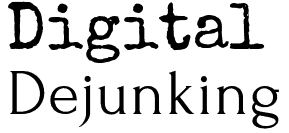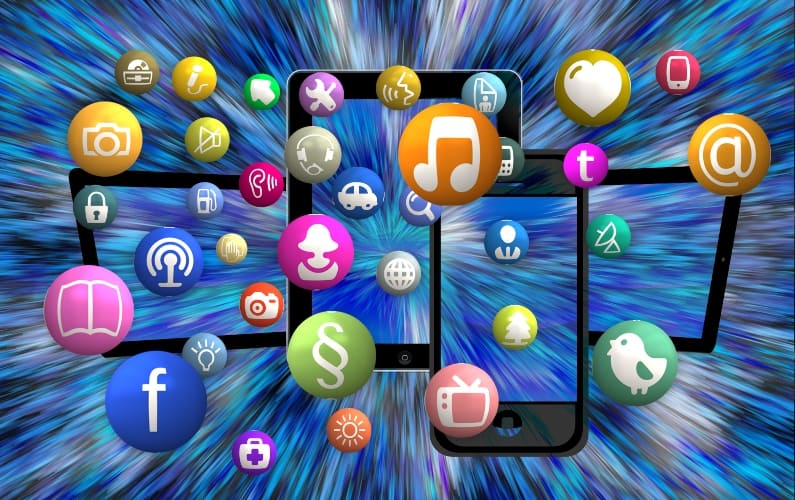Digitizing Deliberately, the Dangers of Delay, and The Illusions of Constant Connectivity
I suspect you have started to feel what I feel on a nearly daily basis.
A crushing weight constantly poised somewhere nearby, in a pocket, on a desk, a nearby wall, or in the air wherever I might be running errands. That crushing weight of a technological influence on my time that I just can’t seem to escape.
All too often, these sensations of “digital overwhelm” are creatures of our own creation. Nobody is forcing me to carry my digital devices on me at all times like a ship dragging its anchor the entire length of its voyage.
The threshold that describes “digital overwhelm” is also different for each of us. While I might be content spending ten hours a day staring at various screens or listening to stimuli, you may start feeling burned out after only three or four hours, and want to smash your device by hour seven!
So, where does this pressure truly originate?
The answer lies in our recent transition into the Technological Era. Here at the end of 2019, there are more devices than human beings on the planet, and more content already existing, and continuing to be produced, than we could ever entirely absorb in our lifetime!
With all that constant bombardment via technology, how can we unburden ourselves from the foreboding sense of doom each time we view a screen?
With all that constant bombardment via technology, how can we unburden ourselves from the foreboding sense of doom each time we view a screen?
That answer lies in building two new habits; “Digitizing Deliberately” and “Do It Now.”
Digitizing Deliberately
When I had you do your initial “Digital Self-Diagnostic”, I wanted you to get a sense for how you feel with each of the typical digital tasks that take up our modern lives. This allowed you to build a baseline against which to compare your future feelings about these tasks as we build better habits and establish healthy digital boundaries.
Each digital stimulus prying at you for your attention has been painstakingly crafted to feel like the most important thing by the individuals and organizations that crafted these applications and services. Your phones notification chime was tested, tuned, and trialed to ensure it would grab your attention. The shift in volume between your radio program and the advertisements was by design to engage your brain and elicit responses.
Although they crafted each of these to get the greatest response from you, they lacked the knowledge that only you could provide; the knowledge of when enough – is enough for you.
When we completed our self-diagnostic, we also were able to identify some of the key areas where we can make changes in our digital habits to reduce the sense of digital overwhelm that stems from the modern patterns of constant connectivity. You know possess key knowledge that allows you to set your own limits and to say no when doing another digital task feels too burdensome.
Digital tasks do not have to be done right now in most cases.
You can choose when you want to complete them.
Your sense of overwhelm can be reduced by empowering yourself to take control back from your devices and start practicing the positive habit of Digitizing Deliberately. Put your digital tasks on a schedule. Also put them on a time limit.
When we establish our own boundaries for digital tasks, they lose their foreboding nature, and return to being simple options we can choose to incorporate into our day. An email notification is no longer that critical action element that we have to dread delaying, and social media no longer gets to dictate whether or not we look down at our screens.
The second habit is to:
Do It Now.
As we put our digital tasks on a timeline, we are limiting their power over us. For that to be effective, we must show up to the digital task when we’ve scheduled it, and actually do the task within the time we’ve allotted.
Failing to do the digital tasks when we said we would will result in a second digital stressor – “Digital Delay.”
Have you ever had a term paper due, a presentation due at work, or a child that reminds you of a project coming due at the last minute, each of which you had ample time to prepare for, but simply never actually completed?
Those are examples of stressors which are entirely manageable if we had simply scheduled the time to do them deliberately, and if we had actually gotten them done when we said we were going to do them.
I want you to practice setting specific times to attack the most challenging digital tasks you identified during your self-diagnostic, and then show up and actually do them for a specific duration. This could be five minutes, or five hours. Just like how you get to set your personal threshold or tolerance for the activity, you get to set the boundaries that define success in this task.
Here is the hard part. I also want you to challenge yourself to ignore that task for the rest of the day, except for when you scheduled time to address it. By putting our digital tasks on a deadline, then showing up and attacking them under a time restriction, we take back the control and prevent them from slowly draining us as we procrastinate them over days, weeks, or even months.
Decide to Digitize Deliberately. Do it now!
If there is a particularly nagging task that is eating at you, pull out your planner and schedule it now. Designate a date and a time when you will sit down and attack the task.
Give yourself permission to create the limits around this. No one else is exactly like you with your obligations, commitments, limitations, or gifts.
ONLY YOU can decide what is appropriate as you rein in the digital dilemmas that may have cropped up in your life.
Over this next week as you start practicing “Digitizing Deliberately”, also give yourself permission to reevaluate your progress with the task. If you need more time to process today’s emails or yesterday’s notifications, that’s fine…
BUT
Beware “Parkinson’s Law.”
I first learned of Parkinson’s Law from the author Chandler Bolt. The law essentially states that the more time you make available in which to complete a task, the more that task will swell to fill the space you give it.
Think of it this way. If I give myself a broad limitation such as, “I will write my term paper on Thursday”, then my brain will permit me (and often has permitted me) to procrastinate on this task up to and including the 23rd hour of the day. That saw me bleary eyed and poorly prepared in class the next day, if I even managed to finish the paper at all.
If instead I say, “From 3-6 PM on Thursday, I will write my term paper”, then I have a firm boundary on when the task should be completed, and my brain has a firm grasp on when the task needs to be completed.
So how does this idea translate into more typical digital tasks? Have you ever found yourself:
Still watching Television (or YouTube), long after the thing we wanted to watch was over?
Getting lost in emails long after we’ve handled everything from today, this week, or this month?
Getting lost in emails long after we’ve handled everything from today, this week, or this month?
Scrolling infinitely through social feeds under the illusion we will magically find the bottom, while we are constantly fed more content?
Each of these are examples of digital tasks which swelled to occupy the available time because we didn’t set intentional limits on them. We were not “Digitizing Deliberately.”
Admittedly, this also requires us to apply some elements of discipline, and for that we can incorporate an accountability partner to ensure we do not simply let the deadline slide indefinitely.
Pay attention to the feedback of those around you who you trust. If they suggest you might need to reevaluate a digital behavior, do another “Digital Self-Diagnostic” and check in with yourself to see how you really feel about your existing habits and feelings.
Then, check your schedule and ensure your digital tasks are the proper times and durations for your best results.
What digital tasks do you find expanding to fill your spare time?
Do you have additional recommendations for how to manage this risk or improve your productivity?
Make sure to comment below and help our fellow Digital Dejunkers as we all work together to improve our digital organization and build healthy habits!
Remember to Digitize Deliberately and here’s to your digital health!
Digital Dave
Digital Dave
Latest posts by Digital Dave (see all)
- Have You Done Your Daily EMAIL 15 - April 25, 2020
- It’s Time to ITEMISE Your Online Content - April 10, 2020
- Digitizing Deliberately - December 18, 2019



